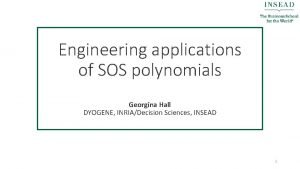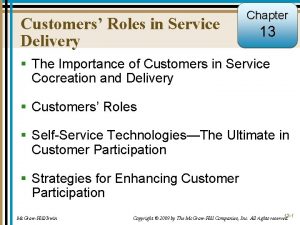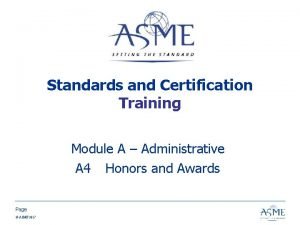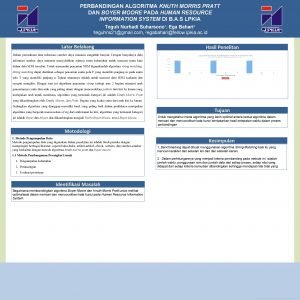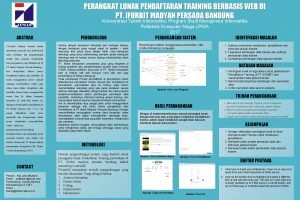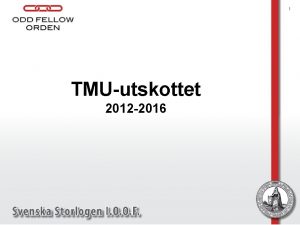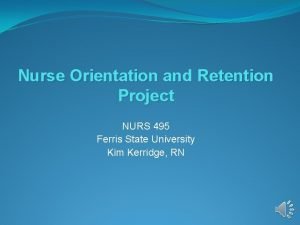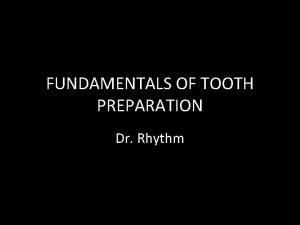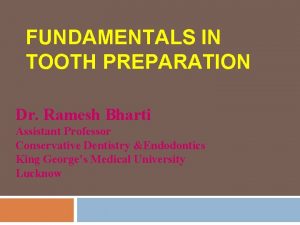Recruitment and retention Georgina Newton Principal Teaching Fellow








































- Slides: 40

Recruitment and retention Georgina Newton Principal Teaching Fellow, University of Warwick

PPI

Why address retention issues? Between 2011 and 2014 the number of teachers leaving the profession increased by 11%, and the proportion of those who chose to leave the profession ahead of retirement increased from 64% to 75% NAO November 2016

Why address retention issues? 54% of leaders in schools with large proportions of disadvantaged pupils said attracting and keeping good teachers was a major problem compared with 33% of leaders in other schools. NAO November 2016

What actions can be taken to address retention issues?

What recent studies tell us about teacher retention Overall around 50% of teachers intend to remain, 25% have already left and 25% intend to leave in the next two years In primary 20% intend to quit in the next two years. The vast majority of these are women

Length of time in teaching for primary teachers showing ITQ 21+ 16 -20 7% 7% 2 -5 7% 6 -10 36% 11 -15 43%

Ages of primary teachers showing ITQ over 50 between 40 and 50 between 30 and 40

For what reasons are you considering leaving teaching? the workload is too heavy government policy management expectations are too high I have become disillusioned family/personal commitments I struggle with behaviour management in some of my classes I want to leave teaching to secure higher pay elsewhere I have decided to progress my career outside of school 0 10 20 30 40 50 % responses 60 70 80

What could be done to make you want to stay longer? if I experienced more praise and recognition for my work if pay progression was better if I had the option to reduce my hours if I could secure promotion in the school if I was consulted more about aspects of the job if I had specific help with behaviour management if the behaviour of the students was better if I had retrained to teach a new/additional subject More time to carry out tasks Reduced quantity of subject material to cover Accessible and immediate resources to support individuals with SEN Reduced class sizes Flexibility in time table Reliable IT resources More teaching resources if I had better relationships with senior staff if I could study to develop my professional qualifications (MA. MSc, Ph. D. . . if I could take a short study break or sabbatical if I could engage in an innovative form of CPD Work load reduced so that work/family time was more balanced If workload was dramatically reduced Nothing 0 1 2 3 4 5 6 7


Flexibility in timetable Reduced class sizes Nothing If workload was dramatically reduced more praise and recognition if I had better relationships with senior staff Better work/life balance Accessible and immediate resources to support individuals with SEN better behaviour More time to carry out tasks more agency Better resources more opportunities for (pay) progression reduced hours if I could take a short study break or sabbatical Reduced quantity of subject material to cover if I could study to develop my professional qualifications (MA. MSc, Ph. D etc) if I could engage in an innovative form of CPD if I had retrained to teach a new/additional subject

29 % would stay 1 or 2 more years 71 % would stay 5 years or more lower staff turnover = better pupil outcomes higher teacher effectiveness after 5 to 8 years of service

Recruiting quality teachers HOW?

Consider returners to teaching – 31% of entrants to teaching are returning after a gap in service (53% are NQTs and 15% are from other sectors e. g. working abroad) – 84% of those who have left teaching say they felt positive or very positive about their careers on entry

Understand the needs of the individual An understanding of pedagogical leadership is concerned with the links between desired educational outcomes and the set of social realities that surround the educational setting (Male, 2015) This method of leadership recognises that career decisions can’t be separated from the personal biography of the individual and links “core identity with positive professional identity” (Lindquist and Nordanger, 2015, Day 2011)

PPI

You Home Family Relationships Experience Personality Health and well-being Hopes, dreams, successes, failures

Your school Department context Relationship with closer team Relationship with wider team School performance and Ofsted rating Intake Other local factors e. g. Queen’s visit, fire, mergers, local/pupil issues Change of curriculum affecting your subject/your students

Educational policy Budget changes/implementation of national funding formula Union action National policy changes – Your subject becomes a core subject – Your subject stops being a core subject – Your subject is dropped from the curriculum Change of Government/Secretary of State


PP I

PPI

PPI

PPI

PPI

PPI

Insure your PPI Know yourself and recognise when under pressure Identify source of pressure Consider ways of reducing the pressure Ask for help if you need it Respect your work/life balance and that of others Don’t let the little things get to you “Good enough is good enough!” (Dr. Alison Morgan, 2016)

Teacher years 1 -3 4 -8 Developing a sense of efficacy Identity and efficacy The crossroads… in the classroom • • • 85% very committed 15% teaching “grows on you” (Menzies, 2015) Making mistakes… Reflecting… Developing resources… “teaching will shape you” (Clandinin, 2015) • • 9 -15 Highly effective • Good PPI Additional responsibility • leads to greater sense of effectiveness Workload immense – learning to deal with it • “being good at it” causes commitment (Menzies, 2015) Work/life tensions The most common phase at which teachers quit (12 years) If they continue, it’s with increased commitment, responsibility and impact on others 15 -22 23 -30+ Sustained commitment Sustaining motivation Challenging work/life balance Additional leadership responsibilities (85%) See teacher 171 blog for help! Another initiative! 31+ Ability to cope Looking to retire (Day & Gu, 2014)

PPI


– A full time teacher who is wanting to quit (a recent study showed that half of those facing quitting in the next 2 years are women, aged 30 -39) into a part time teacher

– “tired teachers”

Consider retraining to retain – What % of teachers said they had been trained for a new role they had been asked to undertake in school?

said they had been trained for a new role they had been asked to undertake in school

Consider rewarding the teachers you want to retain

– teachers said that the thing that would most encourage them to stay is receiving praise and recognition – Authentic, genuine recognition (not necessarily pay or chocolate!)

NQT and Beyond – Top 10 Tips from an RQT 1) Learn to say NO – prioritise your own workload 2) Work-life balance is important (Have Saturday or Sunday off, 9 pm cut off) 3) Re-use resources - this is not cheating! 4) Don't be afraid to ask for help (you have a mentor for a reason) 5) Eat well and get enough sleep – visit the staff room 6) Make use of professional development time (10% - Visit departments/observe) 7) Follow the 30 minute rule when planning 8) ‘Routine’ – Ofsted preparation 9) Always have PLAN B – mistakes/misconceptions can always be rectified 10) Challenge yourself – have a long term plan (Pastoral, HOD, SEN)

Caspersen , J. and Raaen, F. 2013 Novice Teachers and how they cope Teachers and Teaching pp 189 -212 Day C. and Gu, Q. 2007 Teachers’ Professional Learning and Development Oxford review of Education Vol 33, No 4, pp 423 -443 Lindqvist, P. and Nordänger, U, 2015 Already elsewhere – A study of (skilled) teachers’ choice to leave teaching. Teaching and Teacher Education pp 88 -97 Male, T. and Palaiologou, I. 2013 Pedagogical Leadership in the 21 st Century Educational Management Administration and Leadership Vol 43, Issue 2, pp. 214 - 231

PPI
 Georgina newton
Georgina newton Edcdp
Edcdp Building a recruitment and retention plan
Building a recruitment and retention plan Provider engagement
Provider engagement Meaning:recruitment
Meaning:recruitment Recruitment retention recovery
Recruitment retention recovery Georgina collins
Georgina collins Toby girl interrupted
Toby girl interrupted Best ice cream wheatley
Best ice cream wheatley Georgina holden
Georgina holden The cruise-control function on georgina's car
The cruise-control function on georgina's car Georgina lock
Georgina lock Georgina krüger
Georgina krüger Christina rossetti remember
Christina rossetti remember Georgina gough
Georgina gough Dyogene
Dyogene How to write a policy statement mun
How to write a policy statement mun Phases of microteaching
Phases of microteaching Autor del himno sublime gracia
Autor del himno sublime gracia Paul harris fellow certificate template
Paul harris fellow certificate template Ieee fellow program
Ieee fellow program Ciaran oliver
Ciaran oliver Nhmrc emerging leadership fellow
Nhmrc emerging leadership fellow Ieee fellow nomination form
Ieee fellow nomination form 2bee3
2bee3 Little fellow
Little fellow Customers and competitors
Customers and competitors Cisco fellow
Cisco fellow Asme fellow nomination
Asme fellow nomination Fellow lpkia
Fellow lpkia Fellow lpkia
Fellow lpkia Odd fellow orden
Odd fellow orden Odd fellow medlemsregister
Odd fellow medlemsregister Recruitment selection and induction policies and procedures
Recruitment selection and induction policies and procedures Insulin and sodium retention
Insulin and sodium retention Ferris orientation
Ferris orientation Pathophysiology of sodium and water retention
Pathophysiology of sodium and water retention Secondary retention form features
Secondary retention form features Grooves and coves
Grooves and coves Primary resistance form features
Primary resistance form features Microsoft exchange 2010 email archiving
Microsoft exchange 2010 email archiving















